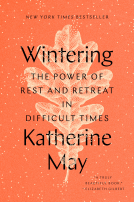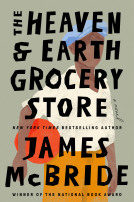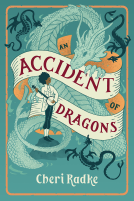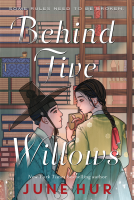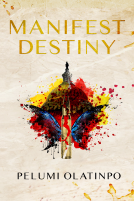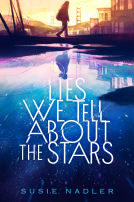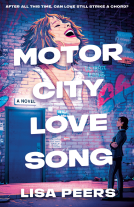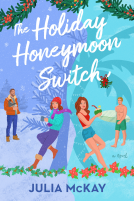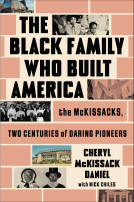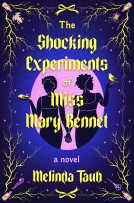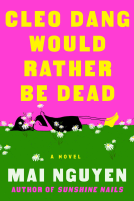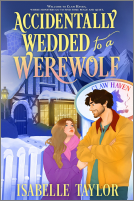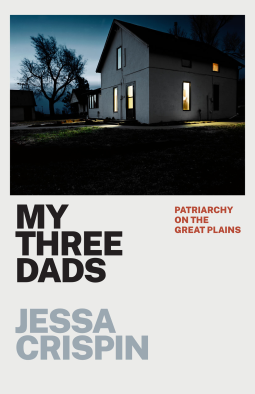
My Three Dads
Patriarchy on the Great Plains
by Jessa Crispin
This title was previously available on NetGalley and is now archived.
Send NetGalley books directly to your Kindle or Kindle app
1
To read on a Kindle or Kindle app, please add kindle@netgalley.com as an approved email address to receive files in your Amazon account. Click here for step-by-step instructions.
2
Also find your Kindle email address within your Amazon account, and enter it here.
Pub Date Aug 16 2022 | Archive Date Sep 01 2022
Talking about this book? Use #MyThreeDads #NetGalley. More hashtag tips!
Description
For many Americans, Kansas represents a vision of Midwestern life that is good and wholesome and evokes the American ideals of god, home, and country. But for those like Jessa Crispin who have grown up in Kansas, the realities are much harsher. She argues that the Midwestern values we cling to cover up a long history of oppression and control over Native Americans, women, and the economically disadvantaged.
Blending personal narrative with social commentary, Crispin meditates on why the American Midwest still enjoys an esteemed position in our country's mythic self-image. Ranging from The Wizard of Oz to race, from chastity to rape, from radical militias and recent terrorist plots to Utopian communities, My Three Dads opens on a comic scene in a Kansas rent house the author shares with a (masculine) ghost. This prompts Crispin to think about her intellectual fathers, her spiritual fathers, and her literal fathers. She is curious to understand what she has learned from them and what she needs to unlearn about how a person should be in a family, as a citizen, and as a child of god—ideals, Crispin argues, that have been established and reproduced in service to hierarchy, oppression, and wealth.
Written in Crispin’s well-honed voice—smart, assured, comfortable with darkness—My Three Dads offers a kind of bleak redemption, the insight that no matter where you go, no matter how far from home you roam, the place you came from is always with you, “like it or not.”
Advance Praise
"Crispin’s erudite analysis and biting wit make this multifaceted history unmissable. Searing and intelligent, this delivers on all counts."―Publishers Weekly, starred review
"Crispin’s erudite analysis and biting wit make this multifaceted history unmissable. Searing and intelligent, this delivers on all counts."―Publishers Weekly, starred review
Available Editions
| EDITION | Other Format |
| ISBN | 9780226820101 |
| PRICE | $19.00 (USD) |
| PAGES | 256 |
Average rating from 10 members
Featured Reviews
My Three Dads was an incisive and engaging read, and one doesn’t need to be from the Midwest for the subject matter to ring true. Definitely more cultural criticism than memoir, Crispin shared personal anecdotes relating to the subject matter without veering into self-obsessed territory. She covered a variety of topics past and present - identity politics, Martin Luther, and beguinages(!) to name a few.
One of the reasons I’m consistently drawn to Crispin’s writing is she knows what she’s talking about. So in this book when discussing things like healthcare, classism, or patriarchy, it’s clear she’s not parroting talking points learned on social media - she has a true understanding. I particularly appreciated the points she made about chosen families not being a stand in for marriage in terms of legal rights and social acceptance, as well as an influx of charities and social media slacktivism not translating to radical changes within our infrastructure. I found myself regularly bookmarking passages I wanted to return to.
My favorite Jessa writing is when she’s at her most searing, and while still remaining incredibly nuanced, this book delivered on that.
 Educator 967019
Educator 967019
If you believe the dominating U.S. culture is not always right and not always sane, and that we’re all a victim of some form of patriarchy, then this book is your jam. If you’ve never read another book by Jessa Crispin, this book is also for you; it stands alone, but it may make you want to pick up the rest of her books. I really enjoyed that this book challenged my thinking about the U.S. that I grew up in. I was not sold on the book at first, because I didn’t really understand the point of the ghost scene, but it grew into an interesting commentary on patriarchy, family, community, violence, capitalism, religion, politics, consumerism, and how it goes to navigate it all as a single person, as a related family, and as a family that is made. It seems to be a very feminist book, which may scare off some readers, but in fact it tackles situations many people deal with, like oppression by those with political power or wealth, and how society shapes what roles men, women, and children must play. Though the personal narrative focuses on the Midwest, I think Crispin discusses themes familiar to all of us across the U.S. as she intertwines her personal experiences with those of the nation at large. This book gets you caught up in the narrative, in a good way, by sprinkling in discourse on current events and historical events we can all remember or we’ve all been exposed to through media like the Branch Davidians in Waco. It also so elegantly transitions from Crispin’s personal story to her thoughts on the larger context of society. I felt so much when she discussed how easily we brush off terrible acts of violence between family members and communities and when she deliberated on the role of marriage and family connections. I will give a content warning on discussion of themes such as family homicide, abuse, and domestic terrorism.
I'm not sure what I expected from this book. Whatever I thought before beginning it, I was not prepared for what it is.
This book is part mystical memoir (it begins with a ghost story, and starts the author down a dark journey with personal demons). It's part historical and political history (a scathing - but deserved - analysis of the author's ancestors). It's part self-deprecating humor (the author's defense mechanism).
More than anthing, the book is a deeply moving deep dive into my home state (and the author's) that examines where we've come from, how we're living through what we're living through, and where we may be going.
"This house, a rental, was the manifestation of giving up hope. I refused to get the message. I was insisting I belonged there," Crispin begins. "Built into the consciousness of every former farm kid is the idea of reinvention. I am not that, I am this other thing, I don't belong here." And finally, through the pages of this book, the reader discovers as Crispin does, "...what I finally understood, what took me so long to figure out: I could just leave. And so I did."
 Educator 1004199
Educator 1004199
This was not what I expected. I mean that in as positive a way as possible. Let's say that the three dads Crispin deep discusses in the book are not the fathers you might assume from the title. This is not a work centered on biological relationships or familial history; it is, rather, a genealogy of our present moment -- Crispin's response -- to the very existential question: What in the biscuits is going on here? (Here being America or 'Murica. Take your pick, it is somewhat fungible.)
Crispin's answer is: No gravy. All biscuits, no gravy. From this reviewer's position, Crispin hits it on the head of the nail pretty dead on. Told from a woman's perspective, the response cannot but factor in gender and sexuality. A person's lens is inevitably shaped by their experience of living within the patriarchy. And that's Crispin's big point IMO: We all live within a patriarchal world and we always have. It is highly likely we always will. Or, at least, those of us alive today always will.
[Side Note: It is likely Crispin wrote the bulk of this book prior to the recent SCOTUS ruling on abortion. It is interesting reading this in the wake of that decision, on the cusp of things going so very sideways. I would have liked to read Crispin's view on that in these pages. Perhaps, next time, eh?]
Crispin's My Three Dads is a long read essay, flowing from one chapter to another like a river, making turns at arbitrary, but logical loci. The book is split, however, into three major parts, one for each "father". Dad One is a figure from Crispin's past, a father figure or an archetype of a male/masculine figure we've all known or read about, the invasive species of man who erases women violently, silently, assuredly, simply through living their own lives. The act of being a man -- in the midwestern definition -- is a violent act toward women. Crispin mulls marriage and children, the banal locale of domesticity as the insidious, quotidian site of patriarchy; here, she admits to its wiles herself. The disguise is love, security, belonging.
Dad Two is the Citizen, in Crispin's case, John Brown, a Kansan historical figure. But again, John Brown is the manifestation -- one of many -- Crispin write about it. She's interested in the archetype again, but again these are men we recognize as living individuals: The White Men Who Feel Their Lack of Control And Lash Out. Politics becomes the platform for these men: the excuse for their rage and the subsequent tantrum. Reading this section was like watching a montage of the American news from the past thirty or so years. Crispin revives Waco, Timothy McVeigh, Nazis, Bolsheviks, bring the conversation to the present with references to unnamed mass shooters. Crispin's point is made visible by the invisible: there's no need to name any of the recent mass shooters of the past twenty years because these perpetrators (typically a man or a boy) are so commonplace as to collate into an archetype of their own.
Dad Three is God, but since that is too multicultural, too broadly applicable as a term, Crispin narrows it in: the Protestant God and, even more specifically, his human mouthpieces, Martin Luther. But this is really a discussion of the Church and the folk version of Christianity as it is practiced in the American Midwest. Crispin lost me a little here, but that may be because I can't relate, having grown up in Asia where religion flavors life in very different ways. That said, having spent a significant amount of my adult life in the Midwest, Crispin's cultural landscape is familiar.
Crispin critiques the patriarchal world we live in, but her point is its all-encompassing presence. The title says this is focused on the Midwest, but really, the world Crispin paints for us is easily recognizable as anywhere else in the United States. The title and structure of the book even performs Crispin's point: the world revolves around man and men and their needs, desires, rages. My Three Dads is a snapshot of what it means to be American -- but, a caveat on that: The people in Crispin's work are white. She doesn't really say this, but she does through silence and implication. The book focuses on the Midwest, after all, and that is the heartland of whiteness, despite the millions of non-white people who reside there now and have historically shaped Americanness. So, let me rephrase: My Three Dads is a snapshot of White Americanness, the kind typically performed, desired, and domiciled in (but not confined to) the American Midwest. But this doesn't mean this is just about or for white people; People of color have to live in a white world, after all. My Three Dads is a worthy expenditure of time for any reader interested in the question: What in the bisuits is goi
 Librarian 77292
Librarian 77292
This was an interesting exploration of the patriarchy and American culture, specifically culture that's often portrayed as the "typical" way of American life. I found the prose engaging. Crispin explores different father figures that those living in male-dominated, Christian American culture will find familiar: an actual father, male figures who foray into politics and shape culture, and the Protestant Christian God as practiced and interpreted in the Midwest. It is a very white-focused book that is exploring manifestations of white supremacy as well as patriarchy.
Readers who liked this book also liked:
James McBride
General Fiction (Adult), Historical Fiction, Literary Fiction
Pelumi Olatinpo
Essays & Collections, Multicultural Interest, Politics & Current Affairs
Cheryl McKissack Daniel
Arts & Photography, Biographies & Memoirs, History
Melinda Taub
General Fiction (Adult), New Adult, Sci Fi & Fantasy
